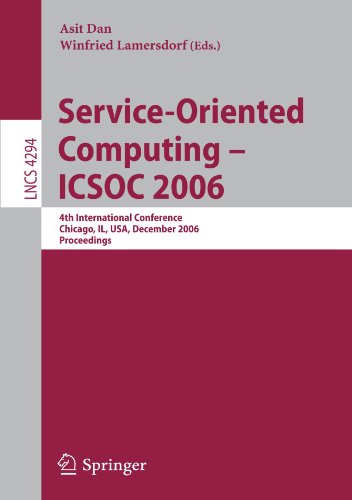

Most ebook files are in PDF format, so you can easily read them using various software such as Foxit Reader or directly on the Google Chrome browser.
Some ebook files are released by publishers in other formats such as .awz, .mobi, .epub, .fb2, etc. You may need to install specific software to read these formats on mobile/PC, such as Calibre.
Please read the tutorial at this link: https://ebookbell.com/faq
We offer FREE conversion to the popular formats you request; however, this may take some time. Therefore, right after payment, please email us, and we will try to provide the service as quickly as possible.
For some exceptional file formats or broken links (if any), please refrain from opening any disputes. Instead, email us first, and we will try to assist within a maximum of 6 hours.
EbookBell Team

5.0
78 reviewsThis volume contains the proceedings of the 4th International Conference on Service- Oriented Computing (ICSOC 2006), which took place in Chicago, USA, December 4–7, 2006. ICSOC 2006 followed on the success of three previous editions of the International Conference on Service-Oriented Computing in Amsterdam, Netherlands (2005), New York City, USA (2004) and Trento, Italy (2003). ICSOC is recognized as the main conference for service-oriented computing research that covers the entire spectrum from theoretical and foundational results to empirical evaluations as well as practical and industrial experiences. ICSOC 2006 built on that foundation while - troducing several innovations in furthering this goal. Service-oriented computing brings together ideas and technologies from many d- ferent fields in an evolutionary manner to address research challenges such as service composition, discovery, integration, monitoring and management of services, service quality and security, methodologies for supporting service development, governances in their evolution, as well as their overall life-cycle management. ICSOC 2006 strengthened the link to two important communities, Software Engineering and Grid Computing, with well-known leaders from these communities serving in important organizing roles such as general chairs in shaping the conference.